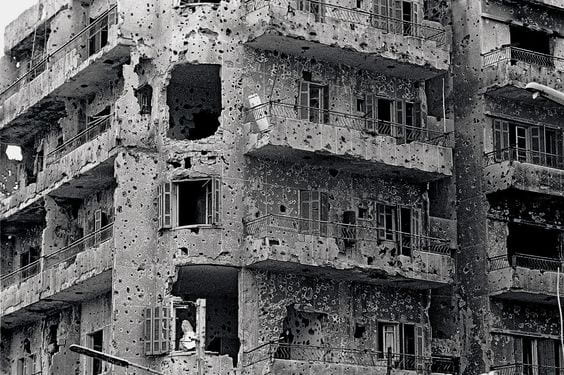April 13, 1975, an unforgettable date for many, the Lebanese civil war commenced, enduring for a period of 15 years, and causing widespread dispersion and fragmentation in our cherished homeland of Lebanon. This war had led to increased mortality rates, displacement of populations, migration and weakened public health infrastructure, resulting in adverse health outcomes.
The Lebanese civil war in 1975 Clearly showed a huge increase in population (400,000 yearly), mortality rate (800 per 1000 person), death rate (4 times more), immigration (700,000) and refugees (900,000). The evident impact of the war itself, combined with the strain on the healthcare system due to shortages in supplies, security concerns, and a loss of skilled personnel due to immigration, is thus apparent.
However, Lebanese people always tend to solve the problems and adapt to any situation in a positive way. The Lebanese accord of 1990 sought to create a structure for political transformation, effectively concluding the war by means of the Taif agreement. Following the cessation of hostilities, the mortality and death rates returned to their previous stable levels.
In the light of our recent past, Lebanon has been confronted with a significant economic crisis, the COVID-19 pandemic, alongside the notorious Beirut Blast and an influx of Syrian refugees in the recent years. As a result, these factors have had an impact on diverse aspects of the Lebanese population’s epidemiological indicators and crucial public health outcomes. The aforementioned factors have caused a disturbance to healthcare systems, infrastructure, and the availability of healthcare services, resulting in a significant strain on the Lebanese healthcare system.
The Syrian war in 2012 clearly showed a huge increase in population (1,200,000 in 3 years), immigration (733,000 in one year) and refugees (1,200,000 in three years) without any considerable effect on mortality rate and death rate (this may be explained by the nature of the Syrian community, being a young society).
Nowadays, Lebanese people must believe in their potential to pass the crisis and get up again to build what was destroyed.

0 Comments